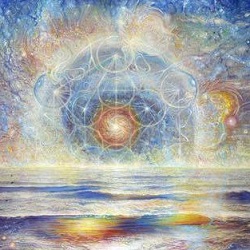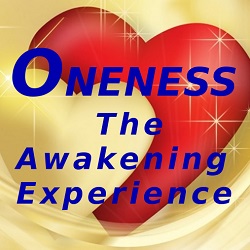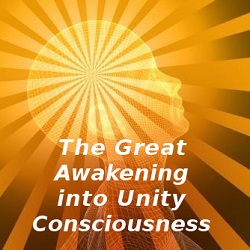Declared a heresy through a sneaky political maneuver in 553 A.D.
Written by Reverend Dennis Shipman
Origen: Mystic or Heretic?
This story begins with Origen (c.185-c.254 A.D.) - considered the most influential Christian theologian and teacher of the third century. A few sources go so far as to proclaim Origen as the greatest teacher of the early Church after the apostles. Living a life of strenuous asceticism, Origen and his teachings long remained problematic for the Church.
Born in Alexandria (Egypt), sources differ whether Origenís parents were Christian or non-Christian. He became fully conversant with scripture, yet he also was familiar with non-Christian education, and he never lost interest in non-Christian writers. Origenís studies of scripture also led him to consult the Jewish rabbis, whose opinions he valued. He was a student under Clement of Alexandria, whom he succeeded as head of a catechetical school.
When Origen was 17, his father (Leonides), who taught Origen profane and sacred literature, was martyred in the persecutions of 202 A.D. Origen was prevented by his mother from following his father into martyrdom by hiding Origenís clothes. At 18, he opened a grammar school to support his family.
Origenís commitment to Christianity led him to become a theological expert for the Church, a lay teacher and a bishop. He traveled widely. With more zeal than wisdom, he took Matthew 19:12 literally, ďThere are eunuchs who have made themselves eunuchs for the sake of the Kingdom of Heaven.Ē He made himself a eunuch, even though his ordination as a bishop (c.230 A.D.) violated Church law that no one mutilated could be a priest.
He acquired considerable philosophical education which he used in his teachings. Because of his reputation he was much in demand, which provoked the Bishop of Alexandria who desired to control Origen. He was imprisoned and tortured during the persecutions in 250 A.D. He died at Tyre in broken health probably in 254 A.D. His grave was still visible in the Cathedral of Tyre during the thirteenth century, and its long survival is attested by historians of the crusading period.
Origenís ambition was to be an interpreter of the scriptures. The literal sense, according to Origen, was not the reason for which the Holy Spirit had given the scriptures to the Christians. The juridical and ceremonial prescriptions of the Law had been abolished by Christ, he asserted. The true sense willed by the Holy Spirit is the spiritual sense, which he found in the New Testament. For Origen, Christ is the center of history. The Old Testament is revelation only insofar as it is a prophecy related to Christ.
A man of virtue and genius with a prodigious capacity for work, he left a large body of writings which have been preserved in a very fragmentary form. None of his commentaries survive complete. Origin can be explained by the heresies he combats, even though he has been charged with many heresies. Theology, in almost all its divisions, was reported to make considerable progress with Origen.
Origen was writing long before an ecclesiastical council issued doctrines concerning the Trinity and the Person of Christ. He lived in a period of history when a far larger area of doctrine could be regarded as more open for discussion and argument than was the case by 400 A.D. By the end of the fourth century, according to the Lost Books of the Bible, the final form of the books of the Old and New Testaments and the Apocrypha were put together -- after 200 years of churchmen deciding which books to reject and which books would become the so-called ďword of God.Ē Though some later changes were made to the Old Testament, the New Testament has remained unchanged for over 1600 years.
Origen's Theology
Evidence of his own personal mystical experience is rare, for Origen speaks little of himself; but it is sufficiently explicit in his writings. Faith is a necessary principle, he says, but with faith the object becomes present; it is seen directly, and touched without an intermediary. To comprehend and to love are unveiled in mystical union. This esotericism with which Origen is often reproached is common to all mystics.
Everything in Origenís theology ultimately turns upon the goodness of God and His desire from His creatures of a freely-given love for Him. The transcendent God is the source of all existence and is good, just, and omnipotent. Christianity is a never ending ladder of divine ascent. In relation to the created world, God is visible and invisible, conditioned and unconditioned, free and restricted. In one sense, the cosmos is necessary to God because the material world was created to discipline the fallen soul. Natural disasters such as earthquakes and plagues remind man that this world is not his ultimate destiny. Yet, in another sense, the created world is not necessary to God, but is dependent on His will for its continued existence.
Origen viewed redemption as a grand education by providence, restoring all souls to their original blessedness. For none, not even Satan, Origen says, is so depraved as to be beyond redemption. Redemption restores fallen souls from matter to spirit, from image to reality.
He taught that Hell cannot exist forever since God cannot abandon any creature because of His respect for freedom. It may take time but Godís love will ultimately triumph. Heaven is not necessarily the final reward because freedom is an inalienable characteristic of the Soul.
Origenís opinions were opposed by many Christians even during his lifetime. The chief accusations against his teaching which became problematic for the Church were, among others: a belief in the pre-existence of souls, theories about the Trinity, denial of the resurrection of the body, a conviction that all would be saved at the end of the world, and his view of Christianity as a kind of Gnosticism. Gnosticism was a philosophical and religious movement prominent in the Greek-Roman world in the second century A.D. It placed emphasis on the redemptive power of esoteric knowledge, acquired not by learning or empirical observation but by divine revelation in the individual. The development of Christian doctrine was to a large extent a reaction against Gnosticism.
The Ban of Reincarnation
Reincarnation is the belief in rebirth; that human beings are reborn again in a new body and have a history of past lives. It holds that the essence of the living being can survive death and becomes reborn in a new set of circumstances. This essence is often referred to as the Spirit or Soul.
The early Christian church accepted the teaching of reincarnation, which was expounded by the Gnostics and by numerous church fathers, including Clement of Alexandria, the celebrated Origen (both 3rd century), and St. Jerome (5th century). Of the three, Origen was the greatest proponent of reincarnation among the early Christian teachers and theologians, and he had the greatest impact.
The first major controversy regarding Origenís views erupted toward the end of the fourth century when he was condemned as a heretic, but the Church took no ecumenical action. Then, nearly 300 years after his death, in the sixth century, Justinian I (483-565 A.D.), a Byzantine emperor and theologian, attempted to wipe out paganism in 529 A.D. He passed damaging legislation against Jews and heretics and attempted to introduce some Christian concepts into the Justinian Code of the Roman law. At the suggestion of a deacon, who later become Pope Pelagius, Justinian condemned Origen and his teachings of reincarnation as a possible solution to doctrinal troubles among the Palestinian monks.
The Councilís decision was accepted without difficulty everywhere except by the Isochristes, a group of monks in the Grand Laura of Egypt. They refused to accept the Councilís condemnation of Origen because they maintained that in the resurrection all men would be the same as Christ.
At the Second Council of Constantinople (553 A.D.), known as the Fifth Ecumenical Council, the Byzantine emperor Justinian forced the Church to declare the teachings of reincarnation a heresy, and to remove reincarnation from Christian theology. As a result, all references to rebirth and reincarnation were removed in the Bible. For nearly 1,500 years, the teaching of reincarnation has been outlawed in the West. This ban continues to the present day. However, in the East, reincarnation has wide influence and acceptance among tens of millions of people. Could they be all mistaken?
SOURCES
- Origen (1955), by Jean Danielou, a biography of Origen. Published by Sheed & Ward, New York, New York.
- The Lost Books of the Bible by Bell Publishing Company, New York, New York (1979).
- The New Encyclopedia Britannica, Volume 8, 15th Edition (2002). Published by Encyclopedia Britannica, Inc., Chicago, Illinois.
- Encyclopedia Americana, (2001) Published by Scholastic Corporation. New York, New York.
- New Catholic Encyclopedia, 17 Volumes (1961, 1981). Published by the Catholic University of America, Washington, D.C. Prepared by the editorial staff of the Catholic University of America. An international work of reference on the teachings, history, organization and archives of the Catholic Church, and all institutions, religions, philosophies, scientific and cultural developments affecting the Catholic Church from its beginning to the present.
PLEASE SHARE THIS






















